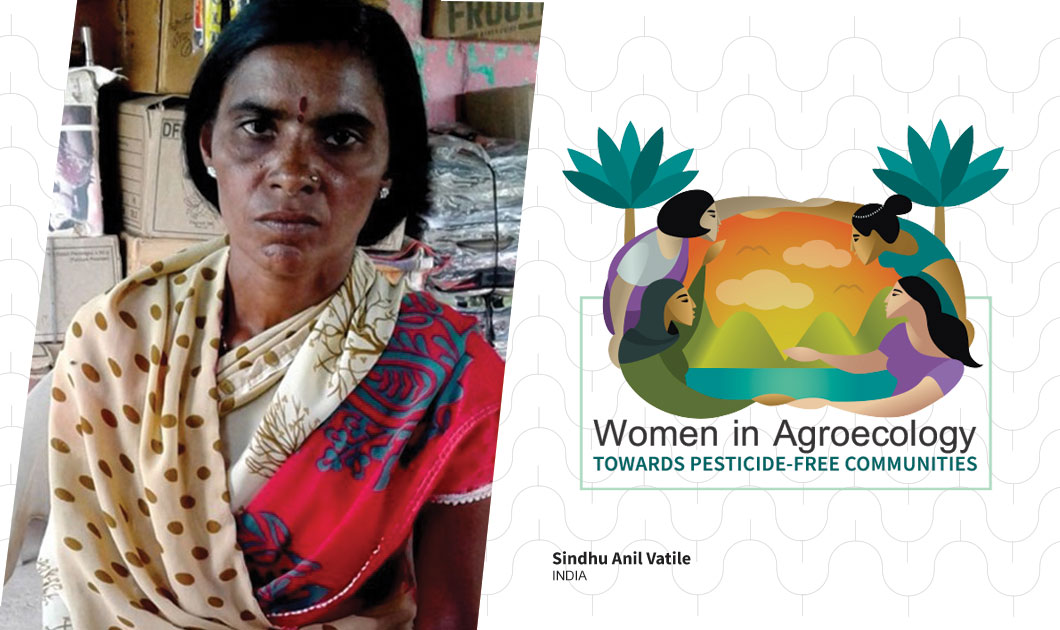Sindhu Anil Vatile, 48, is a cotton farmer from Amadi Village, Yavatmal District, Maharashtra. For the last 20 years, she has been using chemical pesticides on the six acres of land she farms together with her husband, Son.
Sindhu suffered her first serious case of acute poisoning in 2017. At that time, they were using a cocktail of the Highly Hazardous Pesticides profenophos, fipronil, and imidacloprid (Brand names: Profex Super, Police). Sindhu suddenly became unconscious while her husband was spraying these pesticides in their cotton fields. Sindhu experienced nausea, breathing difficulties, a burning sensation in her body. She also temporarily lost her eyesight.
Sindhu was taken to Yavatmal Taluk Hospital where she was admitted for four days and was given treatment for poisoning. According to hospital records, she was most likely poisoned by a cocktail of pesticides. She needed to rest and take medication for at least one month. The government gave her compensation of INR 5,000 (USD 61) for hospitalisation and follow-up treatments.
After that incident, she and her husband realised how harmful pesticides are. However, they still spray pesticides in their cotton fields as they feel that they have no other option. They now use monocrotophos, another HHP (Brand name: Monocil) in their fields. Her son, Hrithik, also helps her husband in pesticide spraying. “Even after one poisoning incident, we are still using pesticides because cotton farming is the source of income for our family. We’re afraid that we won’t be able to get a good yield and profit otherwise,” she said.
Sindhu observes that years of pesticides use has heavily damaged the environment. During her childhood, there were a lot of spiders, earthworms, and frogs in their fields. Today, there are barely living organisms left. She is also worried about chemical contamination of their drinking water, and how this affects her family’s health.
Sindhu also notes that each year, the cost of chemical inputs keep increasing, but the yields stay the same. The farmgate prices of cotton have also not increased, contrary to farmers’ expectations.
Sindhu believes in the need to stop using chemical pesticides. Right now, she does not yet know of alternatives. However, she, her son, and his son’s friends are interested in transitioning to organic cotton farming. “I wish that someone comes to help us to reduce the use of pesticides and move towards agroecology in the near future. Let us hope that the younger generation bring a change in our small village, for the sake of future generations,” she said. ###
Women In Agroecology: Towards Pesticide-Free Communities is a continuing storytelling initiative of PAN Asia Pacific and its partners to document stories of rural women who are survivors of pesticide poisoning and/or making the transition to agroecology.
Our contributing partners: Shikkha Shastha Unnayan Karzakram (SHISUK), Bangladesh; Society for Rural Education, India; Gita Pertiwi, Indonesia; Thanal Trust, India; PAN India; and Sustainable Agriculture and Environment Development Association (SAEDA), Laos








Discussion about this post